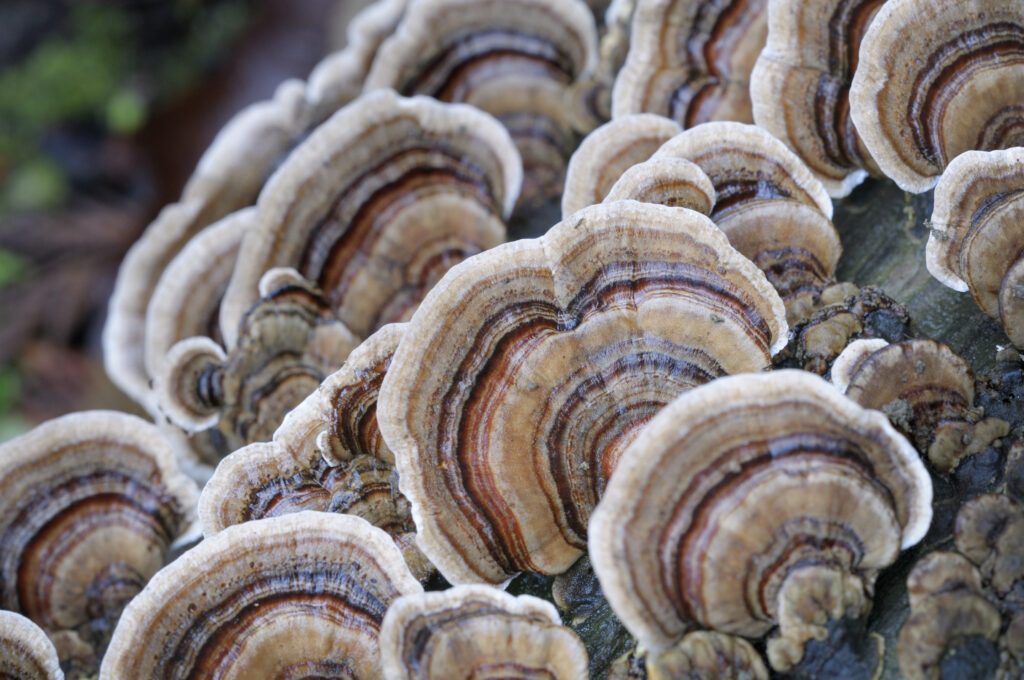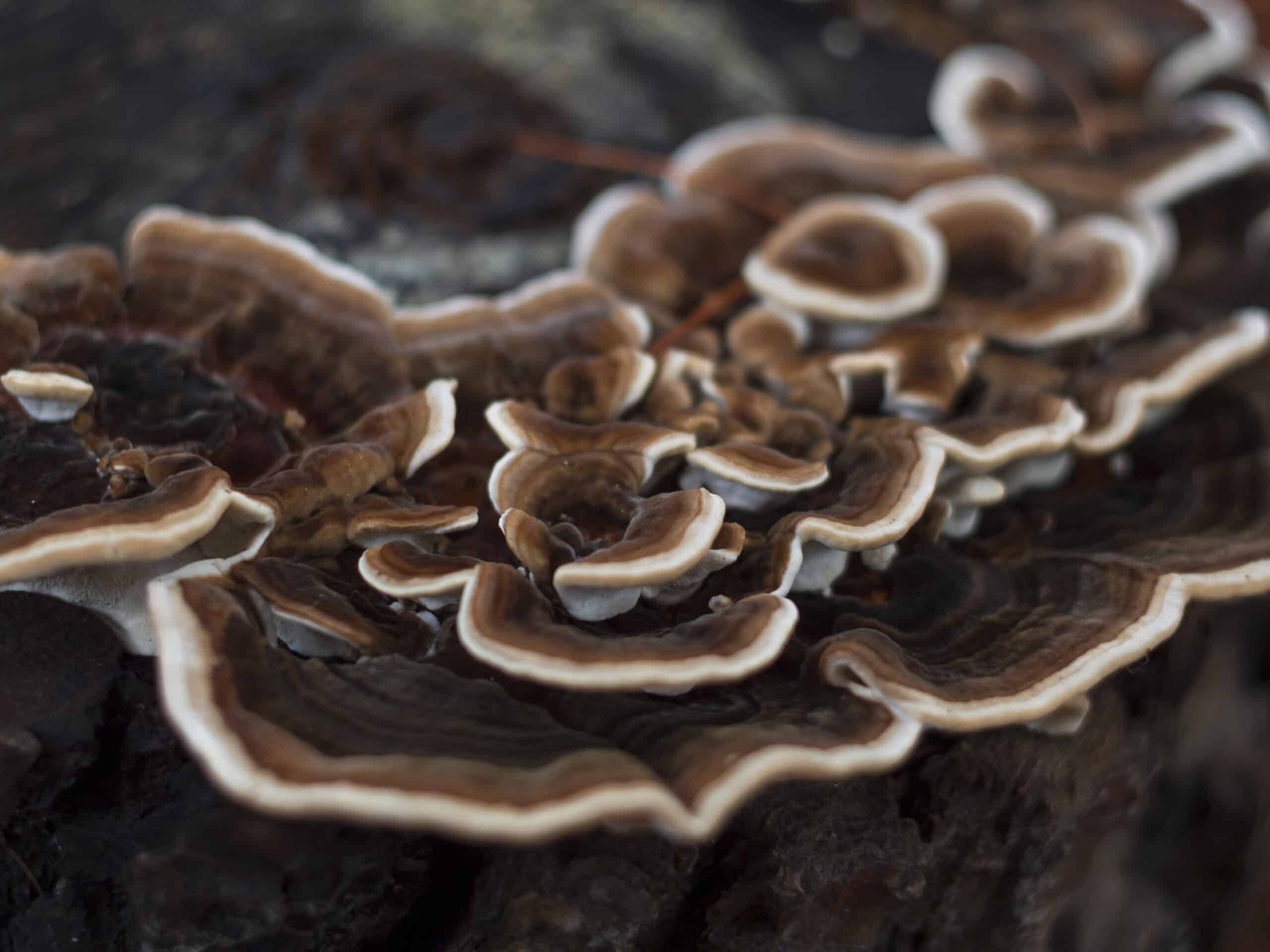
Scientific studies show that the Elfenbankje (Turkey Tail) contains bioactive compounds that may support the immune system, although further research is needed to fully understand its effects.
Mushrooms have been used as natural remedies for centuries. One of the best known medicinal mushrooms is the Turkey Tail, also known in Dutch as the Elfenbankje. Although this fungus may seem inconspicuous, it simply grows in our own forests on dead wood and is rich in bioactive compounds that can contribute to health.
In the Netherlands, the Elfenbankje is a common fungus. It grows mainly on deciduous trees, in fan-shaped structures, often in layers one above the other. The Latin name Trametes versicolor refers to its multicolored appearance, with stripes in white, gray, orange and black. Although edible, it is rarely used in meals because of its tough texture. However, you can make tea from it or dry it for later use.

Turkey Tail has a rich history in traditional Chinese medicine and has been used there for thousands of years. There are legends about its life-extending powers. The active substances are mainly in the fruiting body of the fungus – the visible part that grows from the tree trunk.

The main substances in Turkey Tail are:
Polysaccharides (including PSK and PSP)
Beta-glucans
Antioxidants
Cori Avenue
Ergosterol derivatives
These substances have a possible immuno-modulatory effect, meaning they can help balance the immune system.
Much research is being done worldwide on the effects of Turkey Tail on health. Below is an overview of scientifically researched applications:
Several clinical studies show that polysaccharides from Turkey Tail can boost the immune system, which can be supportive during treatments such as chemotherapy or radiotherapy. Japanese studies show that PSK, an extract from Turkey Tail, may contribute to a longer survival time in certain cancers, such as breast, stomach and colon cancer. Among other things, PSK stimulates the production of natural killer cells responsible for attacking abnormal cells in the body.
In autoimmune diseases such as multiple sclerosis, Crohn’s disease or celiac disease, the immune system acts dysregulated and attacks its own tissues. Turkey Tail may potentially help regulate this immune response. Some studies suggest that the extract may affect T cells and have a normalizing effect on overactive immune cells. This makes Turkey Tail interesting for further research in autoimmune diseases.
For people with chronic fatigue or lowered resistance, for example with long-term infections such as Lyme or Candida, Turkey Tail could play a supportive role. The combination of antioxidants and immune-boosting compounds makes this mushroom relevant for people looking for natural support in recovery.
Turkey Tail is generally considered safe for use. If hypersensitivity to mushrooms, caution is advised. Although promising research exists, it is important to emphasize that Turkey Tail is not a substitute for regular medical treatment. Therefore, always consult with a physician before starting to use medicinal mushrooms.
This blog is informational in nature and is not intended as medical advice. Always consult a qualified physician or specialist in case of health complaints.



Valid from Oct 21 to Nov 2, 2025
Use the code below at checkout to receive 15% off your entire order.

